#MemberMonday: Jacobs & Cushman San Diego Food Bank
April 15, 2025
We do not offer food. Here’s where you can find food.
No distribuimos alimentos. Encuentre comida gratis aquí.
我們不直接提供食物,但我們能幫助您找尋食物。
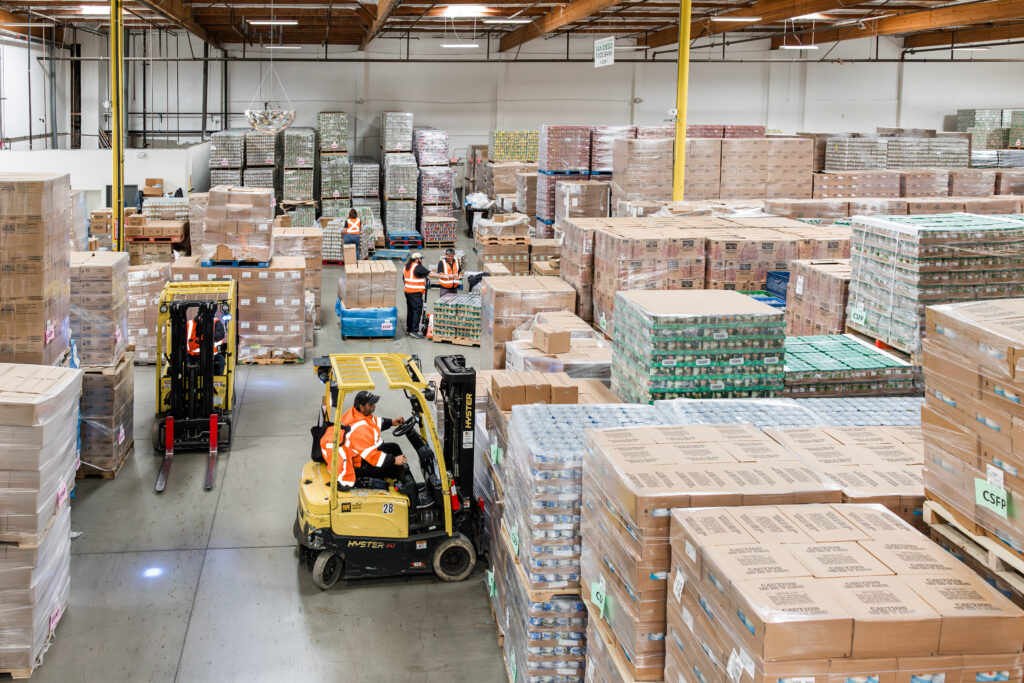
The Jacobs & Cushman San Diego Food Bank serves more than 400,000 individuals each month, with a mission to provide nutritious food to people in need, advocate for the hungry, and educate the public about hunger-related issues. Through a network of more than 450 nonprofit partners, mobile pantries, and disaster relief efforts, the Food Bank works to provide nutritious food to neighbors facing hunger throughout San Diego County.
CalFood dollars play a critical role in the San Diego Food Bank’s ability to provide fresh, nutritious food to the community. These funds allow them to purchase locally grown produce, supporting both the community and local farmers. For the Food Bank, CalFood dollars mean flexibility — being able to source culturally relevant and nutrient-dense foods that meet the specific needs of the populations they serve. For the community, it means access to fresh, high-quality produce that might otherwise be unaffordable. And for local food producers, it provides a reliable market channel, ensuring their farms remain viable and sustainable.
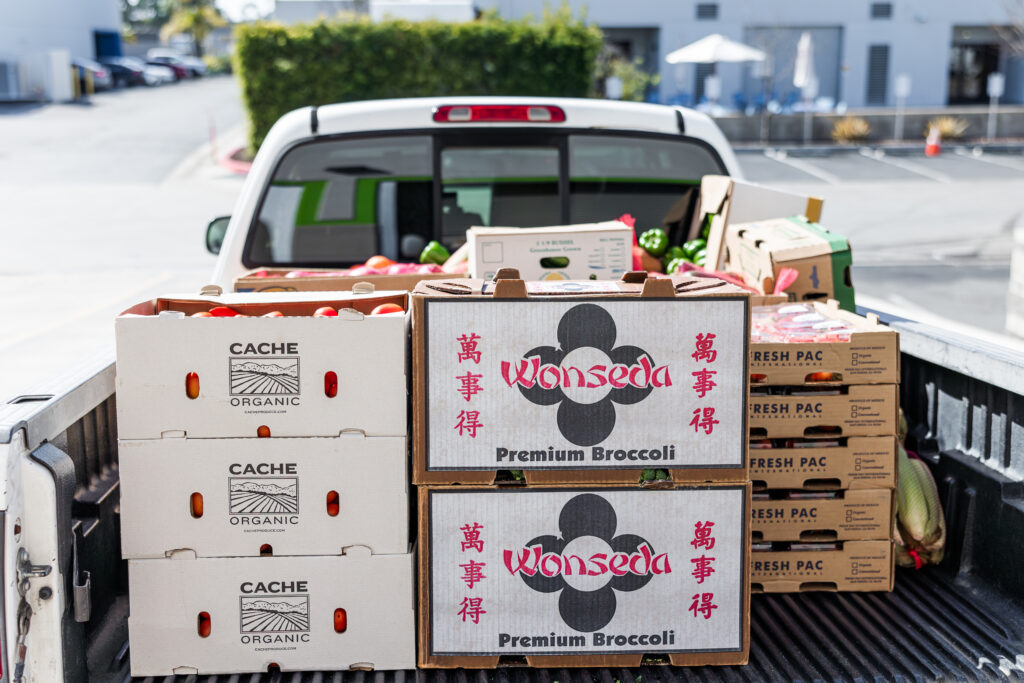
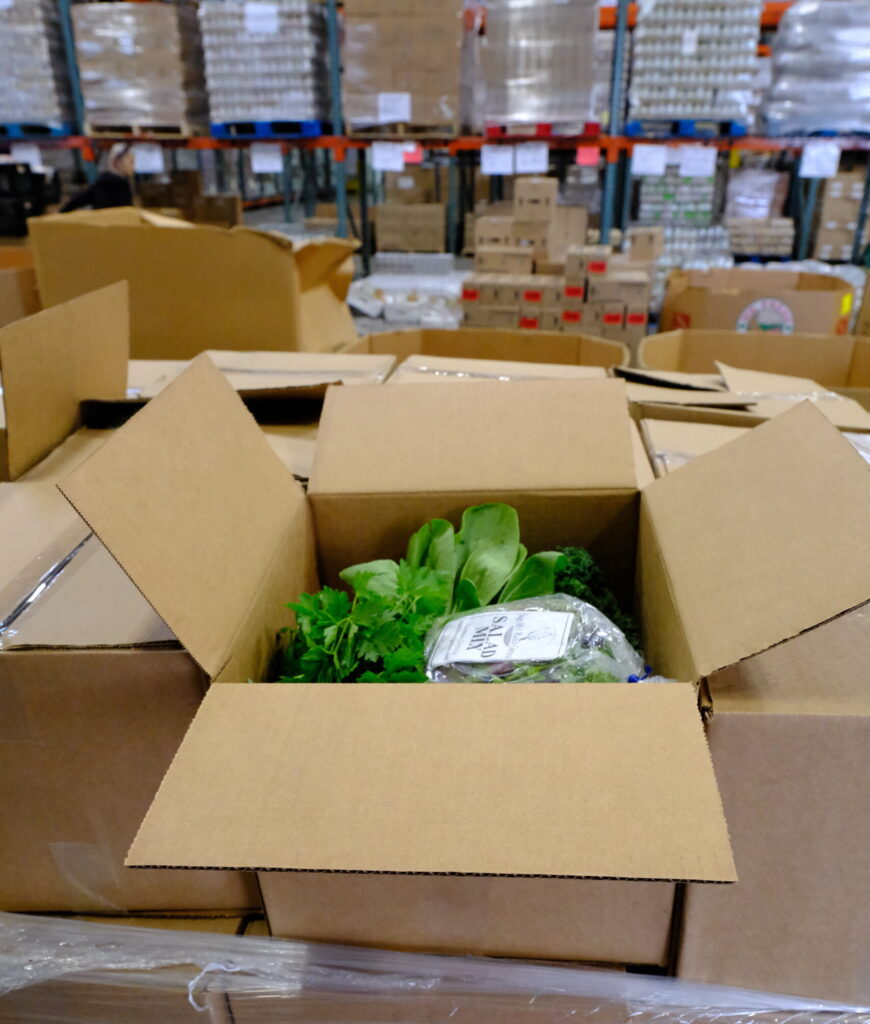
The partnership between the San Diego Food Bank and FoodShed, a local food hub, began with a shared vision of strengthening the local food system. FoodShed, a cooperative of small farms, aggregates produce from local farmers and distributes it to institutions, schools, and food banks. The collaboration was sparked when the San Diego Food Bank learned about FoodShed’s work at the San Diego Food System Alliance annual gathering. Inspired by the cooperative model, the Food Bank saw an opportunity to support local farmers while addressing food insecurity.
The partnership was further solidified when the Food Bank and FoodShed were awarded $200,000 through the Community Food Grant program. This grant allowed the Food Bank to begin purchasing bulk orders of locally grown produce, laying the foundation for a long-term partnership.
For community members, especially those in underserved and rural areas, access to fresh, locally grown produce is transformative. Many of the individuals the Food Bank serves live in areas where grocery stores are over an hour away, and fresh produce is often unaffordable. Through the partnership with FoodShed, the Food Bank is able to provide mixed produce boxes filled with seasonal fruits and vegetables like guavas, broccoli, cabbage, and collard greens. The Food Bank’s nonprofit partner Kindness Weirdo Corp is a small food pantry located in rural San Diego County. They host a client choice style pantry at a senior living community, and Lora Morel, their Executive Officer, shared her emotional response to receiving fresh produce: “I had to pull over on the side of the road because I started crying. [The produce] was so beautiful.”
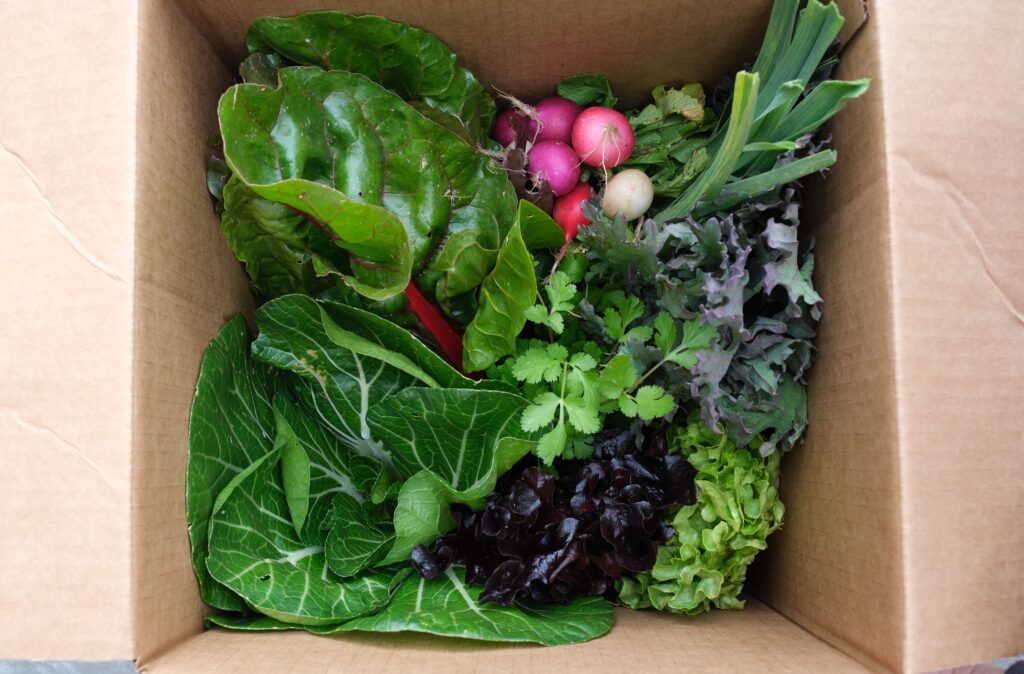
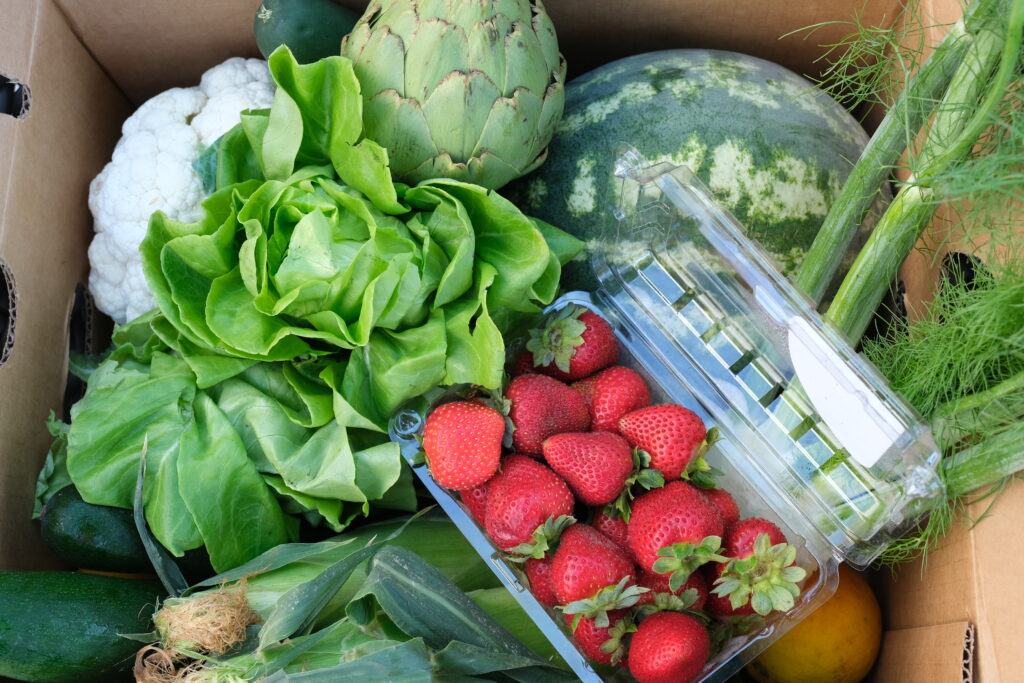
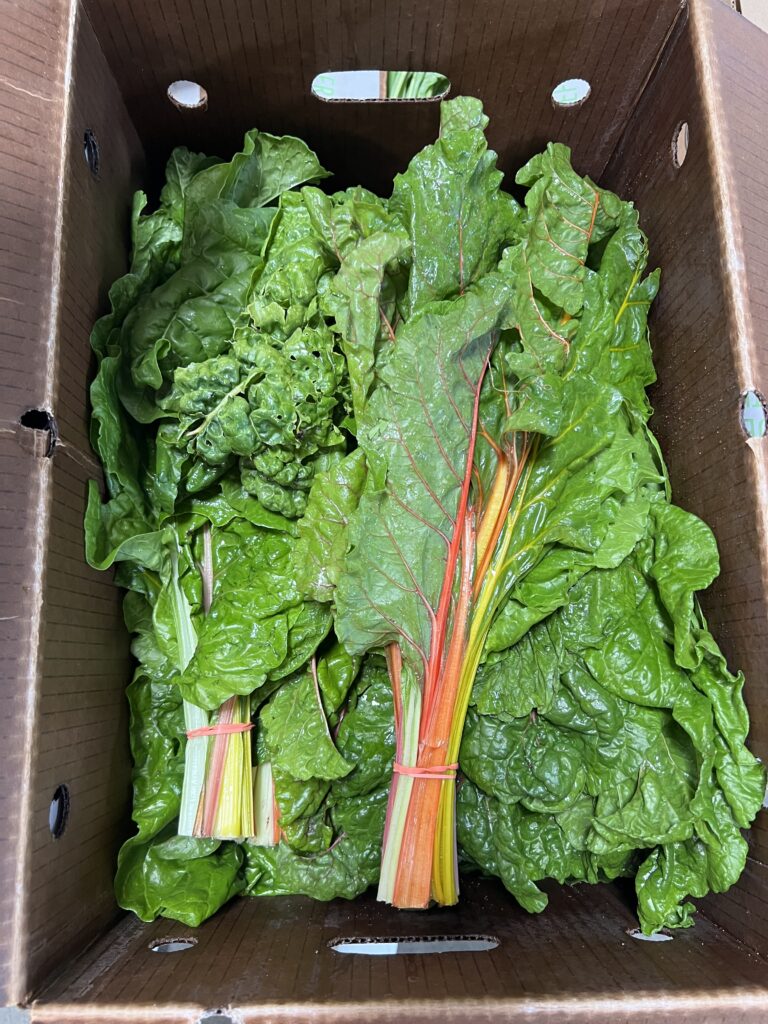
The partnership has allowed the Food Bank to expand its reach and provide more culturally relevant and nutrient-dense foods to the community. Through micro-purchasing, the Food Bank can tailor orders to meet the specific needs of its distribution partners and their clients. For example, they can order bok choy for agencies serving primarily Asian communities or guavas for those who cherish tropical fruits.
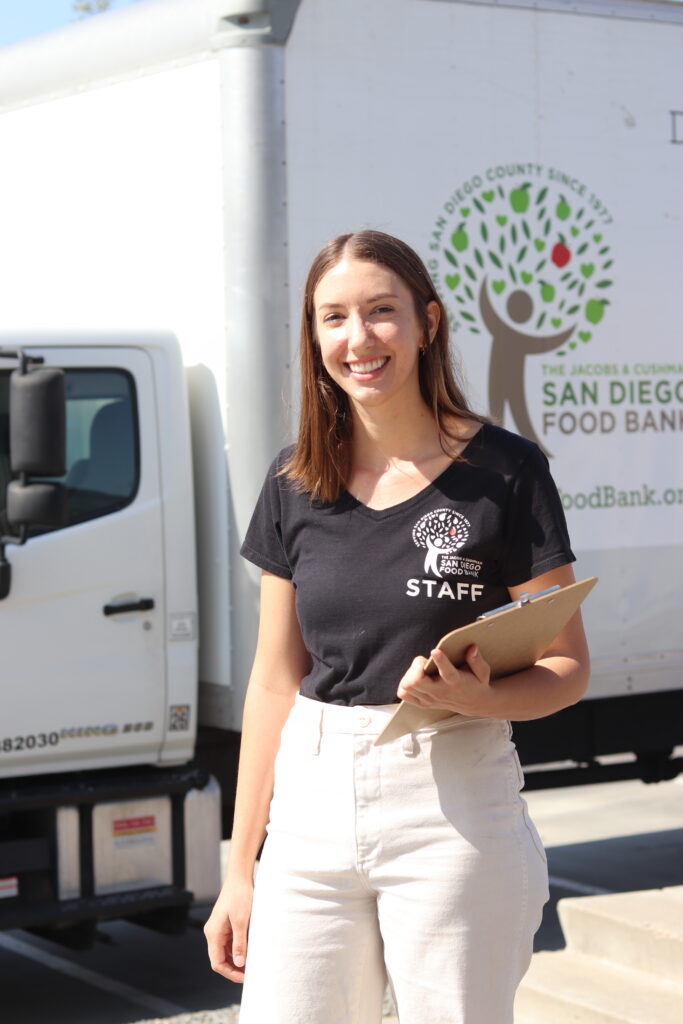
The Food Bank’s Mobile Pantry Program, which targets rural and remote communities, has been particularly impactful. These rural areas are often the hardest hit by disasters, such as wildfires and power outages, making the provision of fresh food even more critical. By delivering locally sourced produce to these communities, the Food Bank not only addresses immediate hunger but also builds resilience against future challenges.
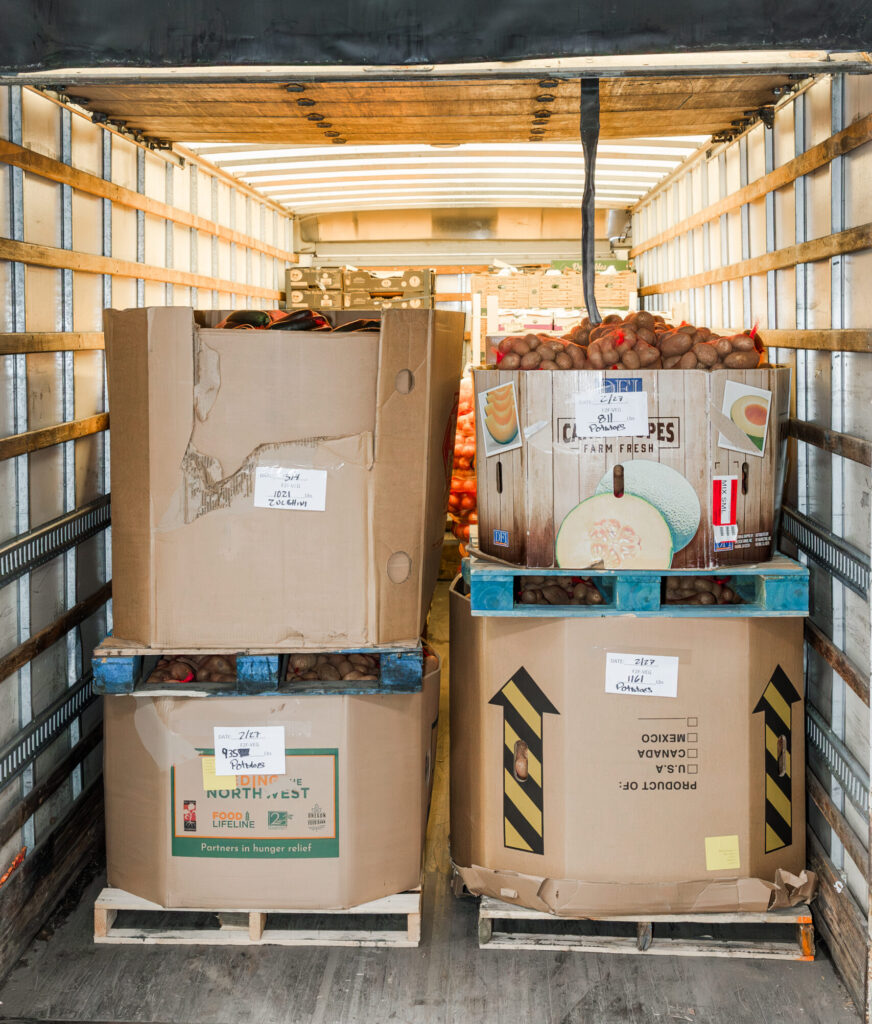
For local farmers, the partnership with the Food Bank has been a lifeline. FoodShed works with a network of about 60 small farms, ranging from a quarter acre to 100 acres, many of which are organic and women-owned. The consistent market channel provided by the Food Bank allows these farmers to plan their crops and invest in their operations.
As Ellee explained,
The best thing we can have, especially for a beginning farm, is a reliable market channel. It allows us to reach out to the smallest farmers and say, ‘Hey, if you plant this, we will buy it.’”
This stability is crucial for small farms, which often struggle to compete in the larger agricultural market.
Additionally, many of these farms use regenerative and carbon-sink farming practices, which sequester greenhouse gases and contribute to California’s climate goals. By supporting these farms, the Food Bank is not only addressing food insecurity but also investing in a more sustainable and resilient food system.
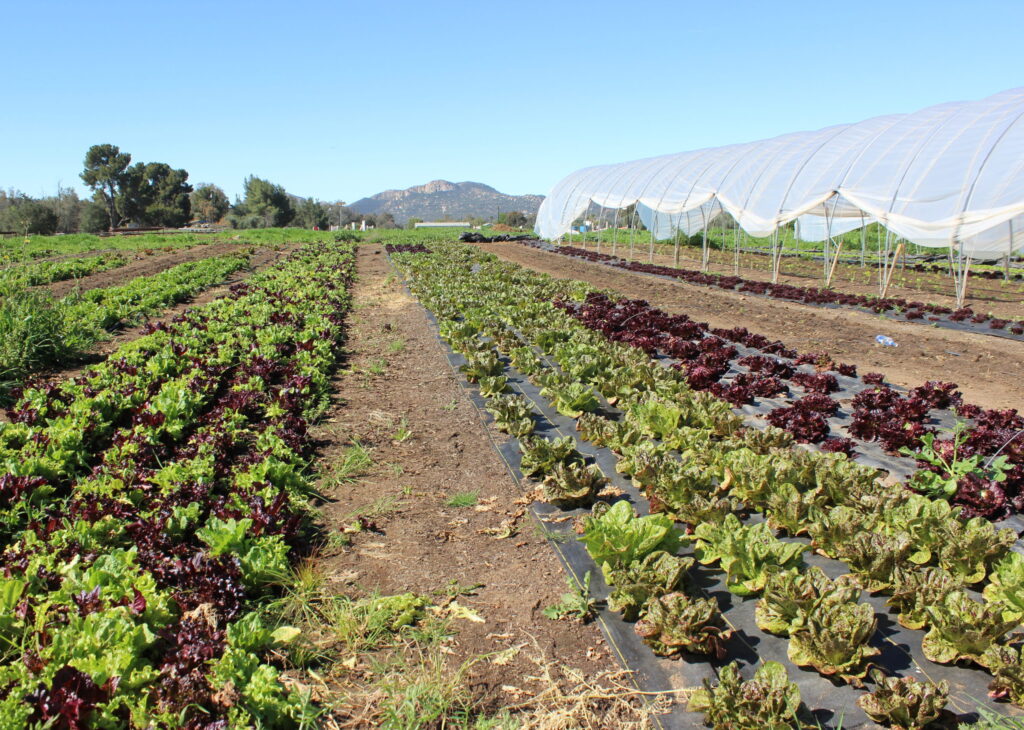
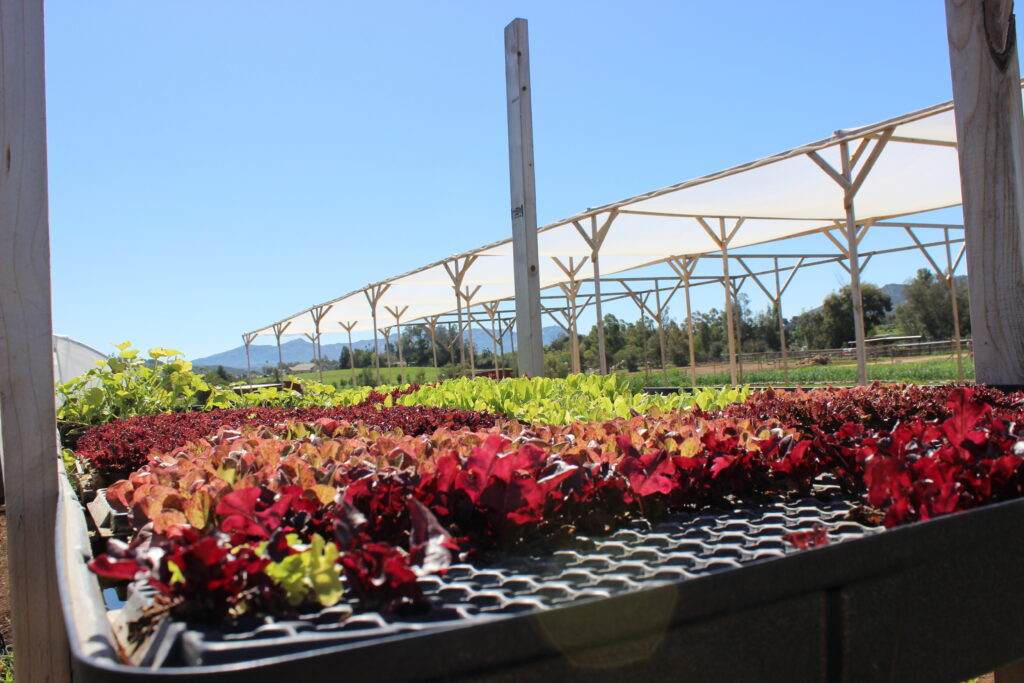
The looming reduction in CalFood funding will profoundly impact the Food Bank’s ability to support local farmers and provide fresh produce to the community. With fewer funds, the Food Bank will be forced to make difficult decisions, such as prioritizing the lowest cost per pound over locally sourced options. This shift would undermine the progress made in building a resilient local food system and limit the Food Bank’s ability to meet the diverse needs of its community.
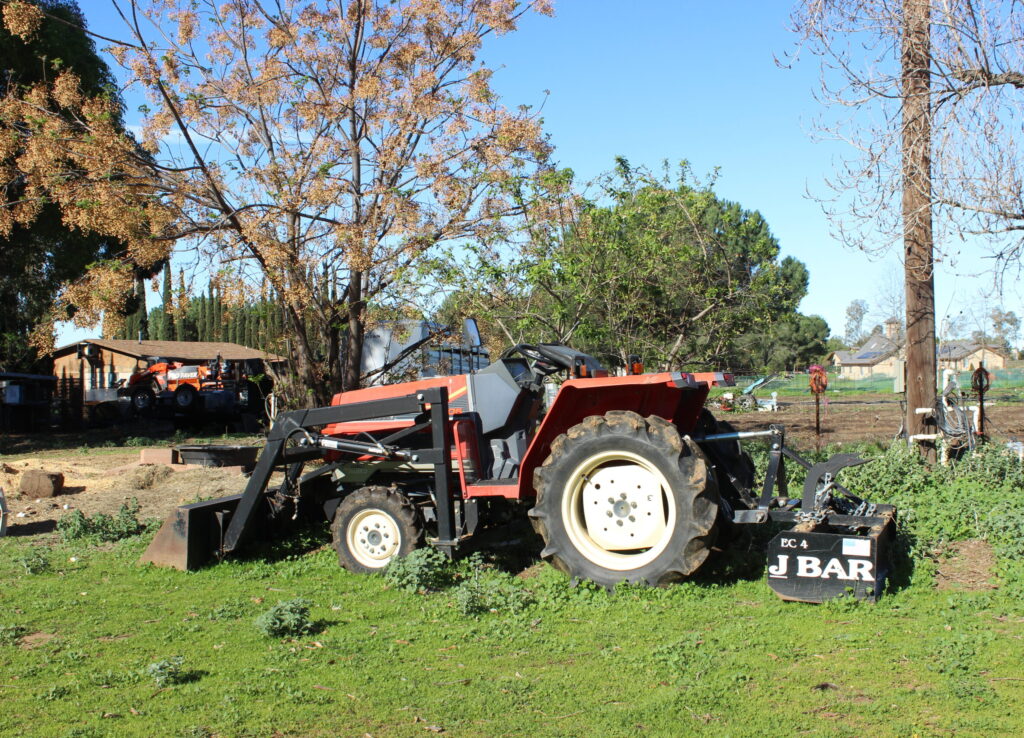
Through partnerships like the one between the San Diego Food Bank and FoodShed, and with the support of CalFood dollars, we can build a food system that nourishes communities, sustains local farmers, and protects our planet. But we must ensure that the successful and vital CalFood program receives the funding it needs — that’s why we are calling on California’s leaders to sustain $60 million for CalFood in the State budget.
CalFood supports partnerships like the one between the San Diego Food Bank and FoodShed that strengthen local farms while ensuring families have access to fresh, nutritious food. You can support these efforts to sustain CalFood by sending an email to your state legislators here.
All photos/quotes/information courtesy of the Jacobs & Cushman San Diego Food Bank.